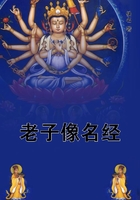THE GUEST WRITES AND TELLS THE STORY OF THE DINNER PARTY. MANY years have passed since my wife and I left the United States to pay our first visit to England. We were provided with letters of introduction, as a matter of course. Among them there was a letter which had been written for us by my wife's brother. It presented us to an English gentleman who held a high rank on the list of his old and valued friends.
"You will become acquainted with Mr. George Germaine," my brother-in-law said, when we took leave of him, "at a very interesting period of his life. My last news of him tells me that he is just married. I know nothing of the lady, or of the circumstances under which my friend first met with her. But of this I am certain: married or single, George Germaine will give you and your wife a hearty welcome to England, for my sake." The day after our arrival in London, we left our letter of introduction at the house of Mr. Germaine. The next morning we went to see a favorite object of American interest, in the metropolis of England--the Tower of London. The citizens of the United States find this relic of the good old times of great use in raising their national estimate of the value of republican institutions. On getting back to the hotel, the cards of Mr. and Mrs. Germaine told us that they had already returned our visit. The same evening we received an invitation to dine with the newly married couple. It was inclosed in a little note from Mrs. Germaine to my wife, warning us that we were not to expect to meet a large party. "It is the first dinner we give, on our return from our wedding tour" (the lady wrote); "and you will only be introduced to a few of my husband's old friends." In America, and (as I hear) on the continent of Europe also, when your host invites you to dine at a given hour, you pay him the compliment of arriving punctually at his house. In England alone, the incomprehensible and discourteous custom prevails of keeping the host and the dinner waiting for half an hour or more--without any assignable reason and without any better excuse than the purely formal apology that is implied in the words, "Sorry to be late." Arriving at the appointed time at the house of Mr. and Mrs. Germaine, we had every reason to congratulate ourselves on the ignorant punctuality which had brought us into the drawing-room half an hour in advance of the other guests. In the first place, there was so much heartiness, and so little ceremony, in the welcome accorded to us, that we almost fancied ourselves back in our own country. In the second place, both husband and wife interested us the moment we set eyes on them. The lady, especially, although she was not, strictly speaking, a beautiful woman, quite fascinated us. There was an artless charm in her face and manner, a simple grace in all her movements, a low, delicious melody in her voice, which we Americans felt to be simply irresistible. And then, it was so plain (and so pleasant) to see that here at least was a happy marriage! Here were two people who had all their dearest hopes, wishes, and sympathies in common--who looked, if I may risk the expression, born to be man and wife. By the time when the fashionable delay of the half hour had expired, we were talking together as familiarly and as confidentially as if we had been all four of us old friends. Eight o'clock struck, and the first of the English guests appeared. Having forgotten this gentleman's name, I must beg leave to distinguish him by means of a letter of the alphabet. Let me call him Mr. A. When he entered the room alone, our host and hostess both started, and both looked surprised. Apparently they expected him to be accompanied by some other person. Mr. Germaine put a curious question to his friend.
"Where is your wife?" he asked. Mr. A answered for the absent lady by a neat little apology, expressed in these words:
"She has got a bad cold. She is very sorry. She begs me to make her excuses." He had just time to deliver his message, before another unaccompanied gentleman appeared. Reverting to the letters of the alphabet, let me call him Mr. B. Once more, I noticed that our host and hostess started when they saw him enter the room alone. And, rather to my surprise, I heard Mr. Germaine put his curious question again to the new guest:
"Where is your wife?" The answer--with slight variations--was Mr. A's neat little apology, repeated by Mr. B.
"I am very sorry. Mrs. B has got a bad headache. She is subject to bad headaches. She begs me to make her excuses." Mr. and Mrs. Germaine glanced at one another. The husband's face plainly expressed the suspicion which this second apology had roused in his mind. The wife was steady and calm. An interval passed--a silent interval. Mr. A and Mr. B retired together guiltily into a corner. My wife and I looked at the pictures. Mrs. Germaine was the first to relieve us from our own intolerable silence. Two more guests, it appeared, were still wanting to complete the party. "Shall we have dinner at once, George?" she said to her husband. "Or shall we wait for Mr. and Mrs. C?"
"We will wait five minutes," he answered, shortly--with his eye on Mr. A and Mr. B, guiltily secluded in their corner. The drawing-room door opened. We all knew that a third married lady was expected; we all looked toward the door in unutterable anticipation. Our unexpressed hopes rested silently on the possible appearance of Mrs. C. Would that admirable, but unknown, woman, at once charm and relieve us by her presence? I shudder as I write it. Mr. C walked into the room--and walked in, _alone_. Mr. Germaine suddenly varied his formal inquiry in receiving the new guest.
"Is your wife ill?" he asked. Mr. C was an elderly man; Mr. C had lived (judging by appearances) in the days when the old-fashioned laws of politeness were still in force. He discovered his two married brethren in their corner, unaccompanied by _their_ wives; and he delivered his apology for _his_ wife with the air of a man who felt unaffectedly ashamed of it:















